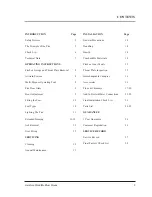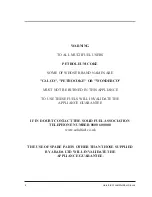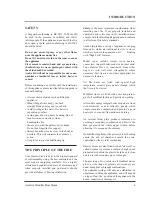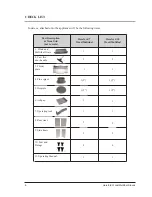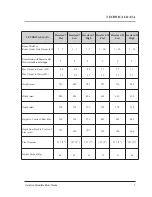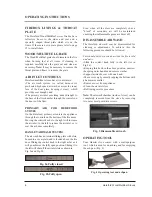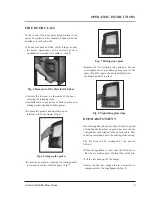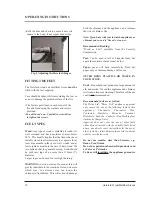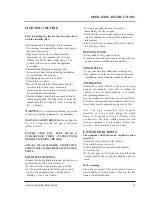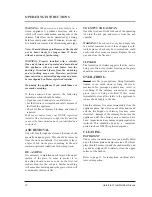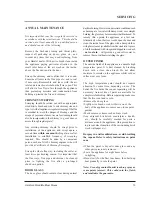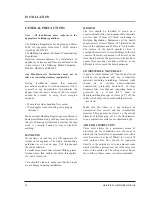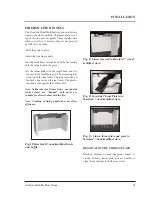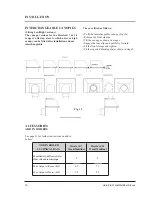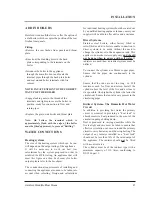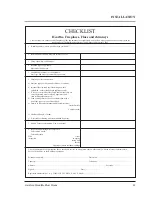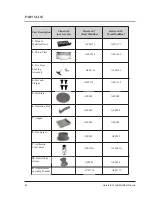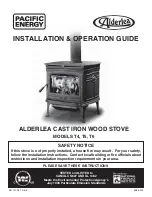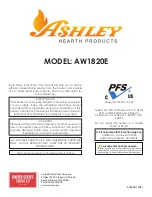
Hereford Wood/Multifuel Stoves
17
INSTALLATION
FITTING THE FLUE OUTLET AND
HOT PLATE
The flue outlet spigot is found inside the appliance.
The hot plate (blanking plate) is supplied fitted to
the top opening and is removed by turning
clockwise (as is the flue outlet).
Smear a very thin layer of fire cement on the faces
of the flue outlet and the blanking plate. Fit the
outlet to the appliance in the desired position.
Lock into place by rotating anti-clockwise and
tighten by tapping with a block of wood and mallet
from the inside of the appliance. Similarly, fit the
blanking plate to the unused opening. Clean off any
surplus fire cement.
Place appliance on the hearth and make sure that it
is level and does not rock.
Connect the chimney ensuring all joints are sealed
with fire cement.
Fig. 15 Flue and Spigot Fitting
FLUES AND CHIMNEYS
Please remember that chimney draught is
dependent on four main factors:
• Flue gas temperature.
• Flue height.
• Flue size.
• Flue terminal.
The stove must be connected to a suitable and
efficient flue that provides a good updraught to
safely take the products of combustion (fumes)
from the stove outlet to the outside air. To ensure a
good updraught it is important that the flue gases
are kept warm and that the flue size suits the stove.
The termination of the outlet at the top of the flue
also needs to comply with the Building
Regulations. The minimum effective height of the
flue must be at least 4.5 metres from the top of the
stove to the top of the flue outlet. When warm the
flue draught should be between 0.1 and 0.2 mb.
A chimney may comply with the regulations but
still be subject to down draught and similar
problems. A chimney terminating above the ridge
level is generally less likely to suffer such
problems.
If a new chimney is being provided it should fully
comply with the relevant Building Regulations that
specify the requirements for solid fuel burning
installations. Suitable types of chimney include the
following.
Masonry chimney
built with clay or concrete
liners, or a chimney block system meeting Building
Regulations. These types of chimney should be
installed in accordance with the Building
Regulations and BS 6461: Part 1.
Factory made insulated chimney
complying
with BS 4543: Part 2 (often called "Class 1
prefabricated metal chimney"). These types of
chimney should be installed in accordance with the
Building Regulations and BS 7566: Parts 1 to 4.

